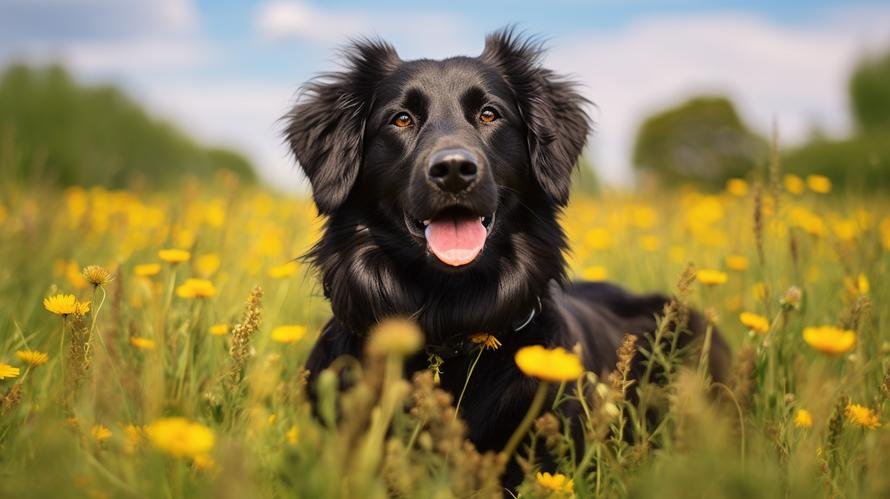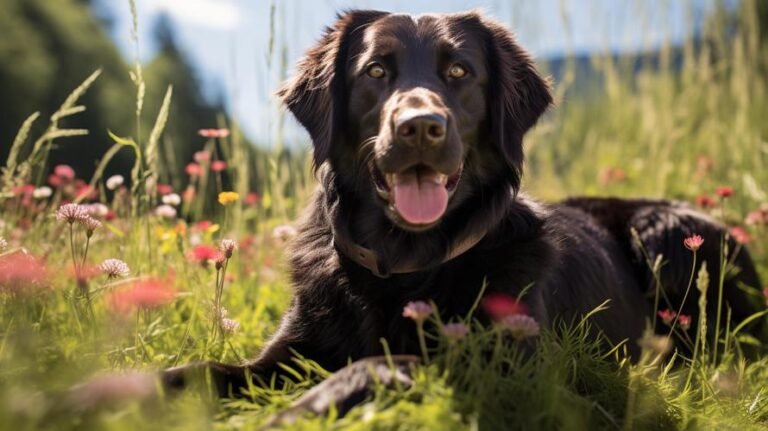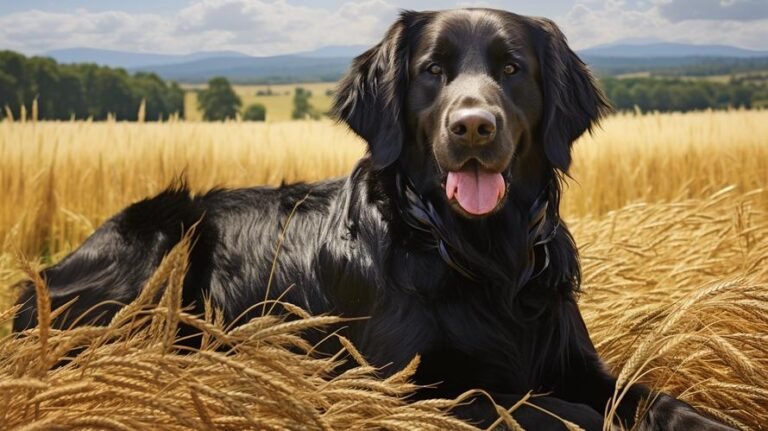You’d be surprised to know, but the Flat-Coated Retriever — regularly mistaken for its far more common relative, the Labrador Retriever — is actually one of the purest breeds of dog in the world. That’s right! Flat-Coated Retrievers trace their roots far back to the early-1800s and have a rich history of being lively, outgoing, and devoted companions and working dogs.
Now, you might be asking, “Why is this useful information?”. Well, it’s because this pure lineage means there are unique considerations when it comes to feeding them. Yes, picking the perfect meal for these elegant dogs is more than just grabbing the nearest bag of kibble. So, roll up your sleeves as we journey down the gourmet path of satisfying your pal’s hunger while maintaining their unique nutritional needs.
First off, let’s delve into the distinctive physical traits of the Flat-Coated Retriever that influence their dietary needs. These dogs are renowned for their graceful, athletic builds. They typically weigh between 60-70 pounds, standing around two feet tall. But don’t let their medium size fool you! They pack more energy than a flask of Red Bull. That’s why their diet should feed their zest, fortifying them for their daily play sessions while not veering them towards obesity.
Now to the million-dollar question, “Does a Flat-Coated Retriever need special dog food?”. The short answer is, it depends. Like humans, Flat-Coated Retrievers have varying dietary needs based on their age, weight, activity level, and overall health.
Though there isn’t a “one recipe fits all” dog food for Flat-Coated Retrievers, there are some basic nutritional guidelines that owners can follow. Generally, a balanced diet of proteins for muscle repair and growth, carbohydrates for energy, fats for skin and coat health, fiber for proper digestion, and vitamins and minerals for overall health is essential.
Flat-Coated Retriever puppies, for instance, need food with a greater amount of protein to support their rapidly growing bodies. Ideally, choose high-quality dog food specifically formulated for large breed puppies.
Adult Flat-Coated Retrievers, on the other hand, due to their energetic nature, would benefit from a high-energy diet with high-quality proteins. It’s essential to monitor their calorie intake though. Too many, and you might be dealing with an overweight dog.
Even the seniors have specific needs. As your Flat-Coated Retriever starts to grow older, their metabolism slows down and they may become less active. This indicates a need for dog food with lower fat content and fewer calories, but rich in high-quality proteins to maintain their muscle mass.
But what about health conditions? Good point! Certain ailments common to Flat-Coated Retrievers, like hip dysplasia, may require special diets to manage. In such cases, do consult your vet for the most beneficial food choices.
Another popular question among pet parents is whether to opt for dry kibble, wet food, or homemade meals. All have their advantages and disadvantages. Kibble is convenient, lasting, and good for dental health, but may lack in taste compared to wet food. Wet food, while flavorful and hydrating, can be less calorie-dense and more expensive. Homemade meals give you total control over ingredients but can be time-consuming to prepare and may not offer all the essential nutrients if not balanced correctly.
The best bet, usually, is a mix of dry and wet food. You could even add some wholesome homemade treats into their diet, like boiled chicken or vegetables. Just remember to avoid toxic foods like chocolate, grapes, onions, and too much salt.
In conclusion, while Flat-Coated Retrievers don’t necessarily need a “special” dog food, they do have unique nutritional requirements that need to be catered to. Always pick high-quality, nutrient-dense food, but tailor it to your dog’s age, activity levels, and health conditions.
Remember, every doggo is unique and reacts differently to different types of food. So, feel free to try different brands and flavors, as long as you make sure that the food you provide is nourishing, balanced, and suitable for your loveable furball.
Recognize the signs if your pooch is thriving on a diet — a shiny coat, clear eyes, good energy levels, and a healthy weight. If not, don’t hesitate to consult a vet. After all, our goal is to have a happy, healthy, and energetic Flat-Coated Retriever bounding around the house, always ready for the next adventure. Happy feeding!



